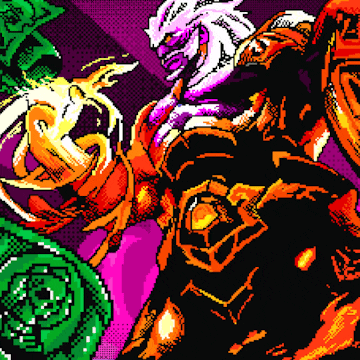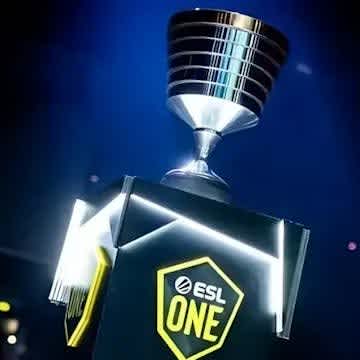The Pro League group stages desperately need fixing
For something that takes up so much space in the CS:GO calendar, the Pro League group stages are forgettable and repetitive, with confusing tiebreaks to top things off. Something has to be done.
Forgettable affairs
Pop quiz, hotshot: here are three matches from past ESL Pro League group stages.
- Entropiq vs Furia
- OG vs BIG
- NIP vs Team Spirit
Can you tell me off the top of your head which one was from Season 12, Season 13 and Season 14? Could you tell me anything about them? The winners? The maps? Anything memorable? Probably not.
This is a big part of the problem. The group stage matches lack identity and anything that would differentiate them from each other. This is not an inherent part of round-robin proceedings: most football fans will be able to tell you which World Cup it was when was it that Italy met New Zealand or when Spain drew 3-3 with Portugal.
This is due to multiple factors. First, there’s an artificial rarity we can’t expect esports events to replicate. No tournament would fulfill its role as a marketing vehicle if we decided to limit it to a 4-year cycle, and the players’ careers are so short that you can’t expect them to willingly miss out on such rare showpiece events.
There’s also the fact that despite the strengths of the third-party circuit, CS:GO tournament hosts seem shockingly unwilling to differentiate between their own events or to experiment with the formats. This is especially egregious now that most TOs have a metric fuckton of partnered teams making up the numbers, ensuring that most group stage matches are actually going to be the same season after season.
There’s nothing like WePlay’s AniMajor from Dota or any other creative adjustments to the CGI scenery to make sure Season 13 isn’t exactly like Season 14: no theming, no special in-game augmented reality elements, no color palette swaps. It’s extremely repetitive.
Personally, I am a fan of round-robin groups and I do see it as a good format to determine the best teams. However, its implementation in CS:GO tournaments has never been particularly good. There are many reasons for this, most of which could be easily fixed by TOs like ESL. Group stages could be just as memorable as playoffs – all it would take us to get there is a little bit of daring and creativity.
How to fix the round robin format in CS:GO
Well, where to even start with this?
Tiebreakers are a nightmare
Round robin formats in a game where drawn matches don’t exist (or are freak occurrences) make no sense unless you’re willing to tweak the formats. Having three different possible results goes a long way towards breaking up the pack, and there is a reason why most traditional sports don’t end up with the sort of car crashes CS:GO event group stages regularly bring to us, namely the three- or four-way tiebreak nightmares that have to be resolved with arcane chants and mathematicians wearing long hoods, holding the dead carcass of a pig.
DeKay put this best back in 2019, and nothing has changed since he posted this tweet:
With best-of-three series played until a winner is decided, draws are not something you can reliably factor into the points distribution. Round difference and map difference are problematic metrics, too: there’s no accounting for a team starting on the T side of Nuke and never getting a chance to fully play out the second half on the more favored side. This asymmetrical nature of CS:GO matches makes most tie-breaking metrics a poor fit for round robin groups. Also, don’t forget
They are also completely unnecessary. There is no reason for super-convoluted tiebreaks like these to come into play, which only serve to detract from the excitement and don’t feel particularly objective or fair either. Head-to-head results should serve as the primary tiebreaker, which is thankfully now the standard approach for most TOs. So what should the solution be when three or more teams are tied on the same score?
First, you could make small changes to your format to ensure that this doesn’t happen as often as it does. We’ll discuss those later. Otherwise, short tiebreaker matches, maybe MR12 or even an overtime format, are superior to anything we’ve seen
Say what you will about the IEM Fall solution, at least the winners were decided in the server and not on a spreadsheet.
There are too many teams in a group
Everyone should always have something to play for at all times. This is only possible when the groups are smaller and there aren’t as many rounds to chew through. With four teams and two spots to play for, no one can realistically get out of sight by the time the final round rolls around, which is a great way to keep things exciting. Having teams already qualified or long ago eliminated before the last set of matches is bad for the product, and all we get for the privilege is a bunch more of the same repetitive matchups.
Having so many teams qualify from the same group also makes it less likely for the top teams to actively fight for the first-place seed instead of saving strats for the playoffs. It is just another way that TOs devalue the starting stage of their own competition.
Spice up the format and stop being so lazy
LAN events get to differentiate themselves by locale, at least in the playoffs stage. But why oh why do we always get the exact same HUDs and colors and setups for group stage affair at ESL and BLAST? Nothing seasonal, nothing new: no wonder the group stage matches are impossible to differentiate.
You could even play around with the format a bit, either as one-off experiments to slightly shake up the repetitive seasonal nature of these tournaments, or as permanent solutions to the round robin problems. Here are just a couple of ideas:
- Play out all three maps no matter what. If a dominant team scores 3-0 wins, map differential actually becomes a relevant tiebreaker.
- Designate “home maps” that must be played in a series. Maybe even adjust the color palette to showcase this? “Away map wins”, similar to away goals, could come into play.
- Give big rewards for group stage sweeps. Something that goes beyond the upper bracket advantage for simply winning your group. An extra map veto or a guaranteed map choice could push the strong teams to take it all seriously instead of dropping the ball in the final round.
There you go, ESL. They’re free of charge. You can thank me later.










